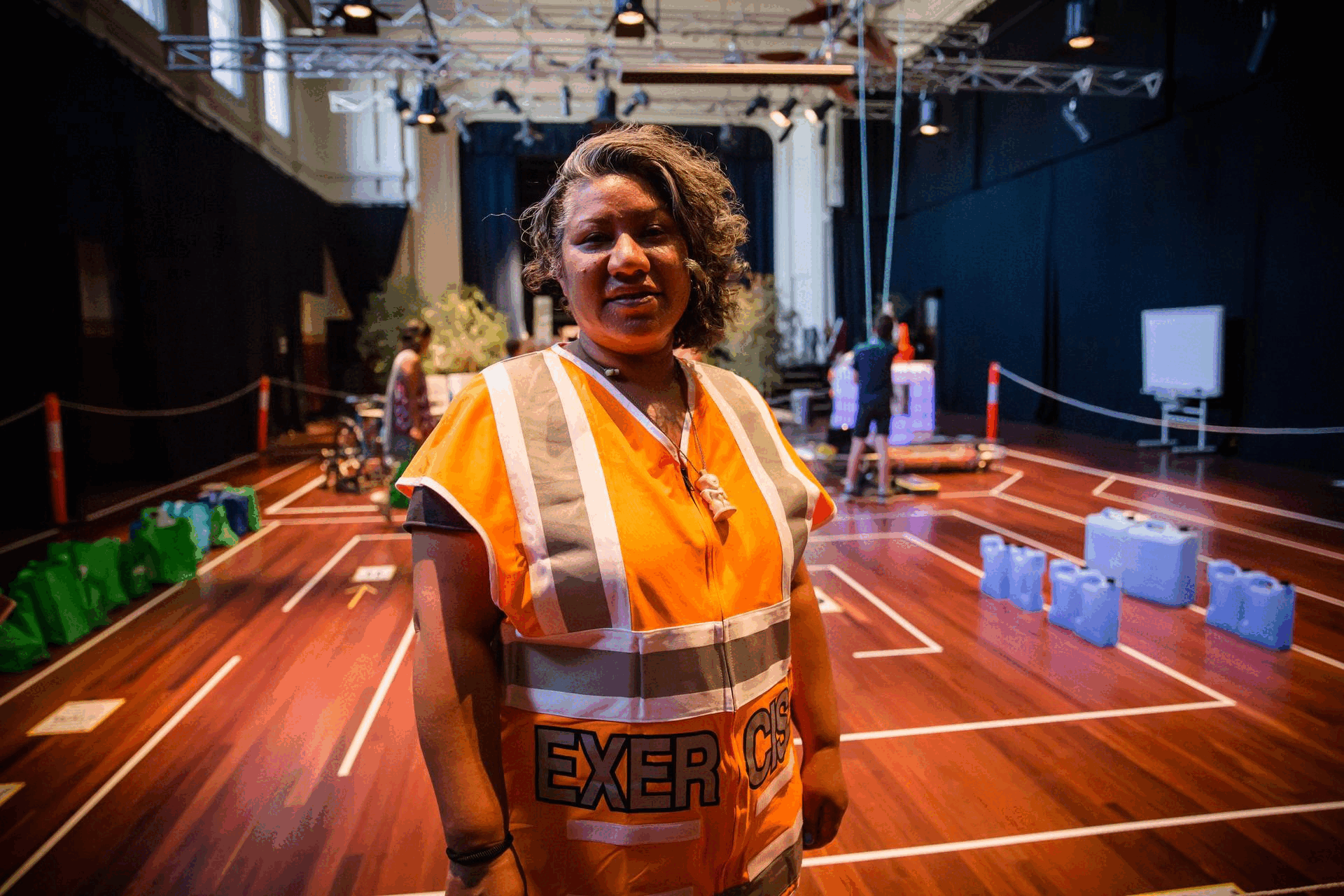Re-Stor(y)ing Oceania
March 23–October 13, 2024
Chiesa di San Lorenzo Castello
5069 30122 Venice
Italy
Re-Stor(y)ing Oceania is a new exhibition comprising two new site-specific commissions by Indigenous practitioners from the Pacific, artist Latai Taumoepeau and architect Elisapeta Hinemoa Heta. The exhibition is curated by Bougainville-born artist Taloi Havini, who returns to Ocean Space after her 2021 solo exhibition. Drawing together performance, sculpture, poetry, and movement, Havini’s curatorial vision is guided by an ancestral call-and-response method.
Re-Stor(y)ing Oceania honors the transformative power of stories told by artists and communities from the deep southern Oceanic regions of this planet. Through Havini’s insightful curation, this exhibition invites viewers to engage with these ancestral connections of kinship and solidarity through two new contemporary projects.
The opening event on March 22, 2024, will feature ceremonial performances by the Tongan artist Latai Taumoepeau and Dr. Albert Refiti, leader in spatial design and architectural environmental research in the Pacific. In addition to the opening event, the exhibition’s public program will include live performances held over the Venice Biennale vernissage week (April 16–20, 2024).
In her practice, Latai Taumoepeau uses faivā (performing art) grounded in Tongan philosophies of relational vā (space) and tā (time). Centered in the body, faivā cross-pollinates ancient and everyday temporal practices to make visible the impact of the climate crisis in the Pacific. The significance of song to poetically record histories and to share values and knowledge in Taumoepeau’s homeland of Tonga is acknowledged through the creation of a new choral work focused on her firm resistance to deep sea mining. The work Deep Communion sung in minor (ArchipelaGO, THIS IS NOT A DRILL) will engage audiences in the process of giving Pacific islanders a voice on this issue. Sculptural and interactive machines installed in Ocean Space will provide audiences with opportunities to engage with Taumoepeau’s work either through activating the installation – which will trigger a musical score – or by taking a seat in the surrounding bleachers to witness local sports teams in performance with the work.
In response to Taumoepeau‘s installation, a live project space emerges at Ocean Space that is imagined in collaboration with Wāhine architect Elisapeta Heta, a Māori, Samoan, and Tokelauan leader and advocate for change. Heta will present a new multi-sensory installation, The Body of Wainuiātea, embodying ritual and ceremony guided by the Māori concept of tikanga from her ancestral lands of Aotearoa New Zealand, alongside those from across the Te Moana-nui-a-kiwa. Designed for exchange and collaboration, this welcoming space seeks to use ancient ways of knowing and relating through story and waiata (song) to restore a greater awareness of atua (the gods) connections to our Ocean, re-establishing the tapu (sacred) within current environmental and scientific campaigns seeking to protect the life of the planets largest bodies of water. Heta’s collaborators include Dr Albert Refiti, Hiramarie Moewaka, and Rhonda Tibble.
Re-Stor(y)ing Oceania is commissioned by TBA21–Academy and Artspace, Sydney, and produced in partnership with OGR Torino culture and innovation hub.
The exhibition will be accompanied by Climate Crisis and Cultural Loss (2021–2024), a two-part research presentation marking the conclusion of the eponymous research project led by Principal Investigator Ute Meta Bauer at NTU ADM. First unfolding at Ocean Space, the research inquiry later materializes in another configuration at ADM Gallery, a university gallery under the School of Art, Design, and Media (NTU ADM) at Nanyang Technological University Singapore. Extending connections and conversations seeded during the inaugural cycle of TBA21–Academy’s The Current fellowship program led by Bauer from 2015 to 2018, Climate Crisis and Cultural Loss continues to build archipelagic networks across the Alliance of Small Island Developing States, deepening existing collaborations with Oceania Centre for Arts, Culture and Pacific Studies in Fiji, and developing new ones further in the South Pacific Ocean, through the art and media non-profit organization Further Arts in Vanuatu.



